Girls Making Tech
Meet South Africa's next generation of digital makers
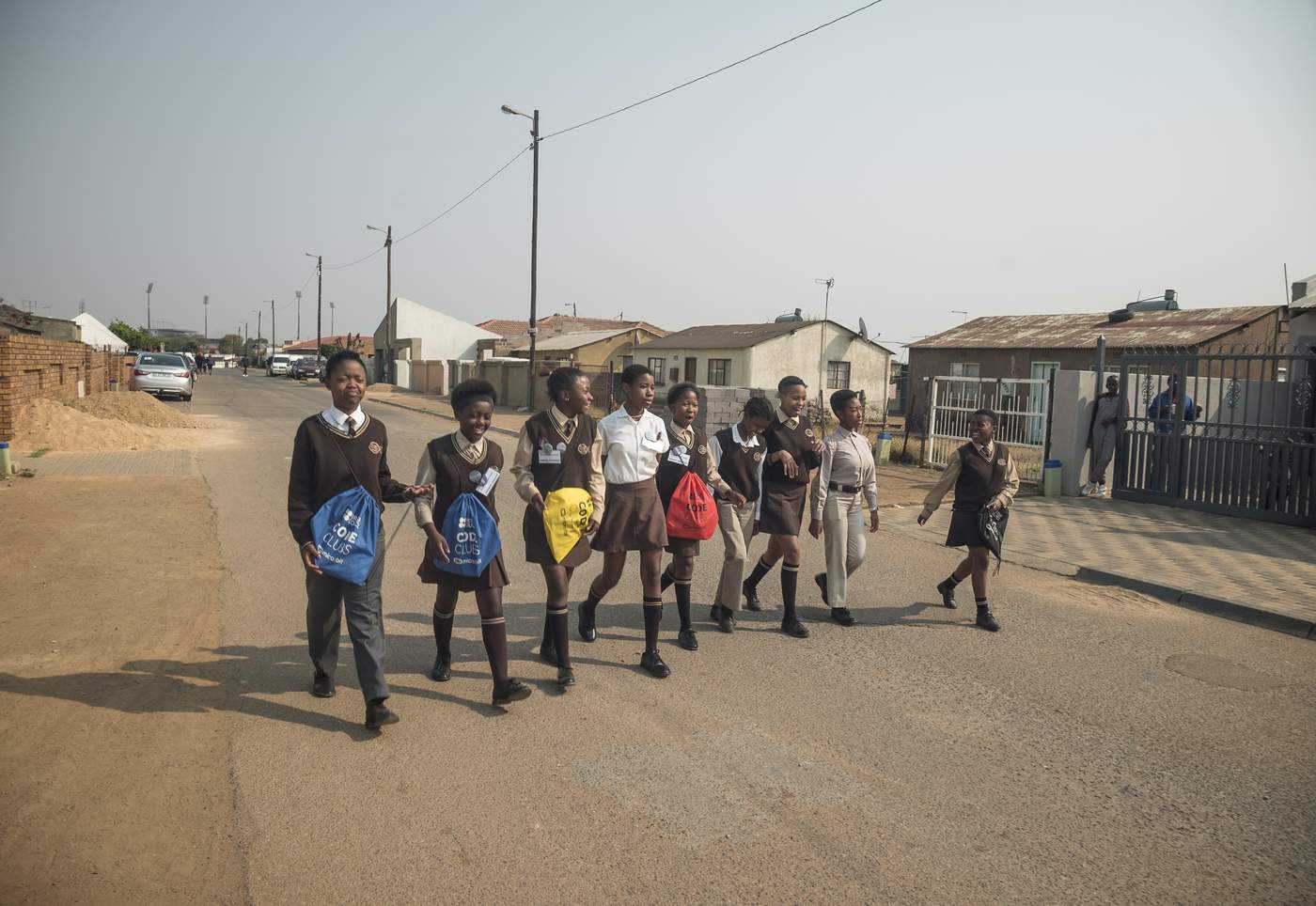
The British Council has launched #GirlsMakingTech, a course introducing female students to computer coding.
By helping girls in South Africa learn new digital skills, our vision is to inspire the next generation of young innovators.

Working towards the United Nation's Sustainable Development Goals.
Working towards the United Nation's Sustainable Development Goals.
In South Africa over a third of people are age 14 or younger
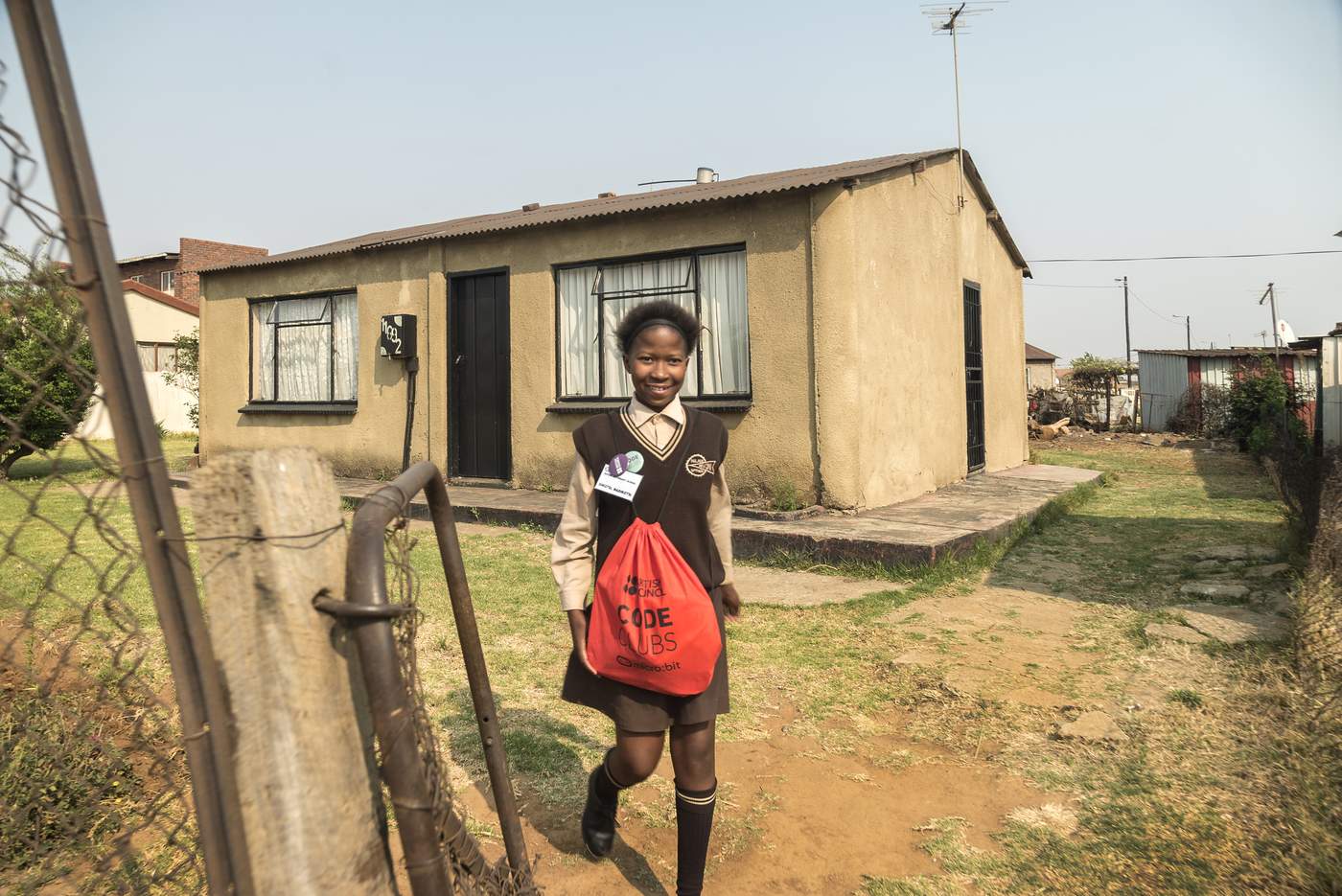
This generation are likely to embrace digital technologies,with 9 million being girls.
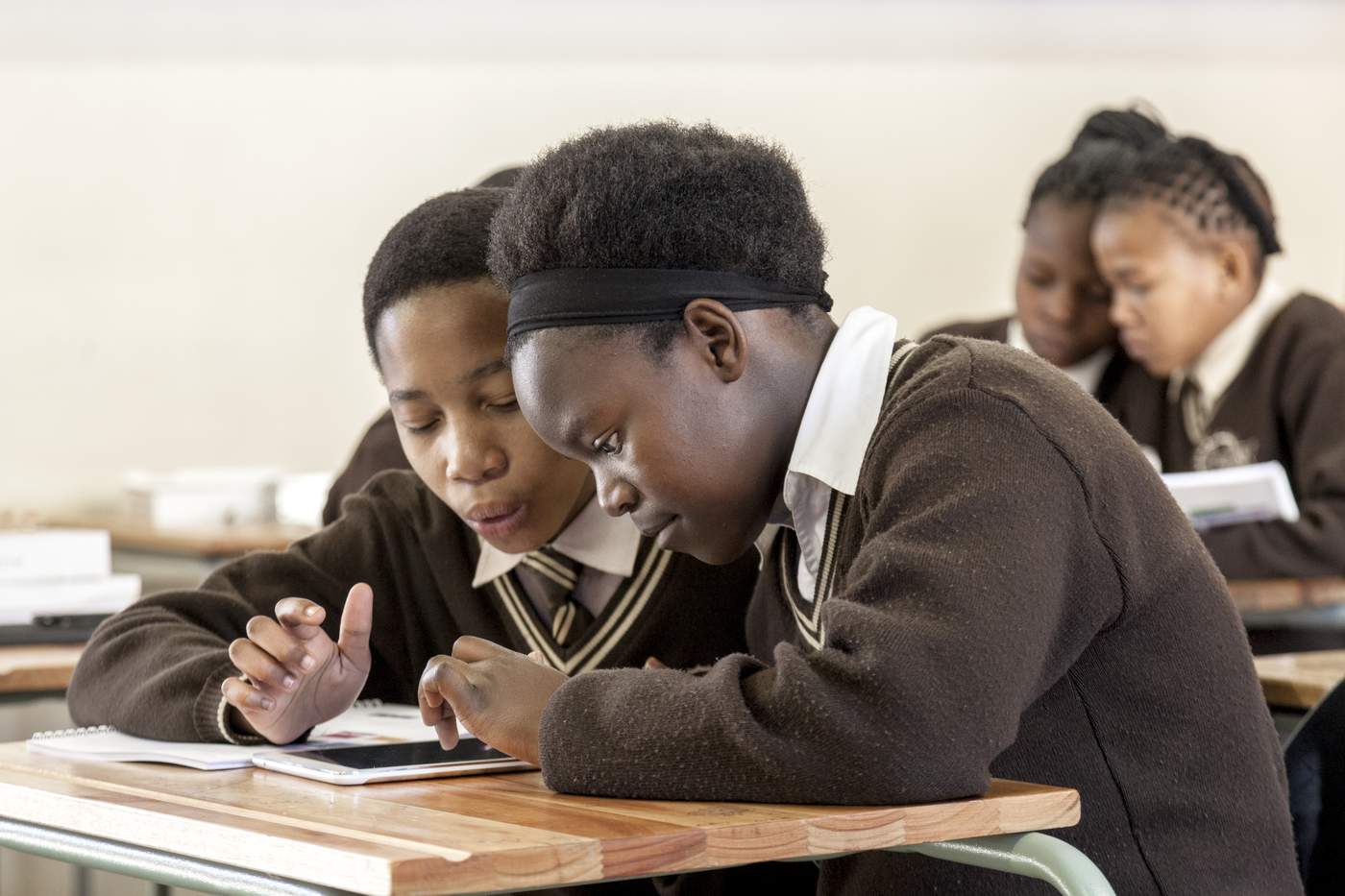
Over half of the world’s population is now online, and a quarter of a billion users came online for the first time in 2017. Africa has seen the fastest growth rates, with the number of internet users across the continent increasing by more than 20 per cent year-on-year.
"Africa holds the world’s youngest population with 700 million below the age of 24. The potential for this next generation to shape our digital future is immense and this can have a huge impact."
- Moses Anibaba, British Council Regional Director, Sub-Saharan Africa
The IT sector in South Africa is expected to reach R175 billion (£9.9 billion) by 2022, creating as many as 119,000 new local job opportunities.
Yet the 23 per cent digital gender gap in Africa is the largest gap globally. The digital gender gap is the economic and social inequality around access, use, and impact of information and communication technologies.
We're working to close this gender gap by creating opportunities to support digital skills education for girl.
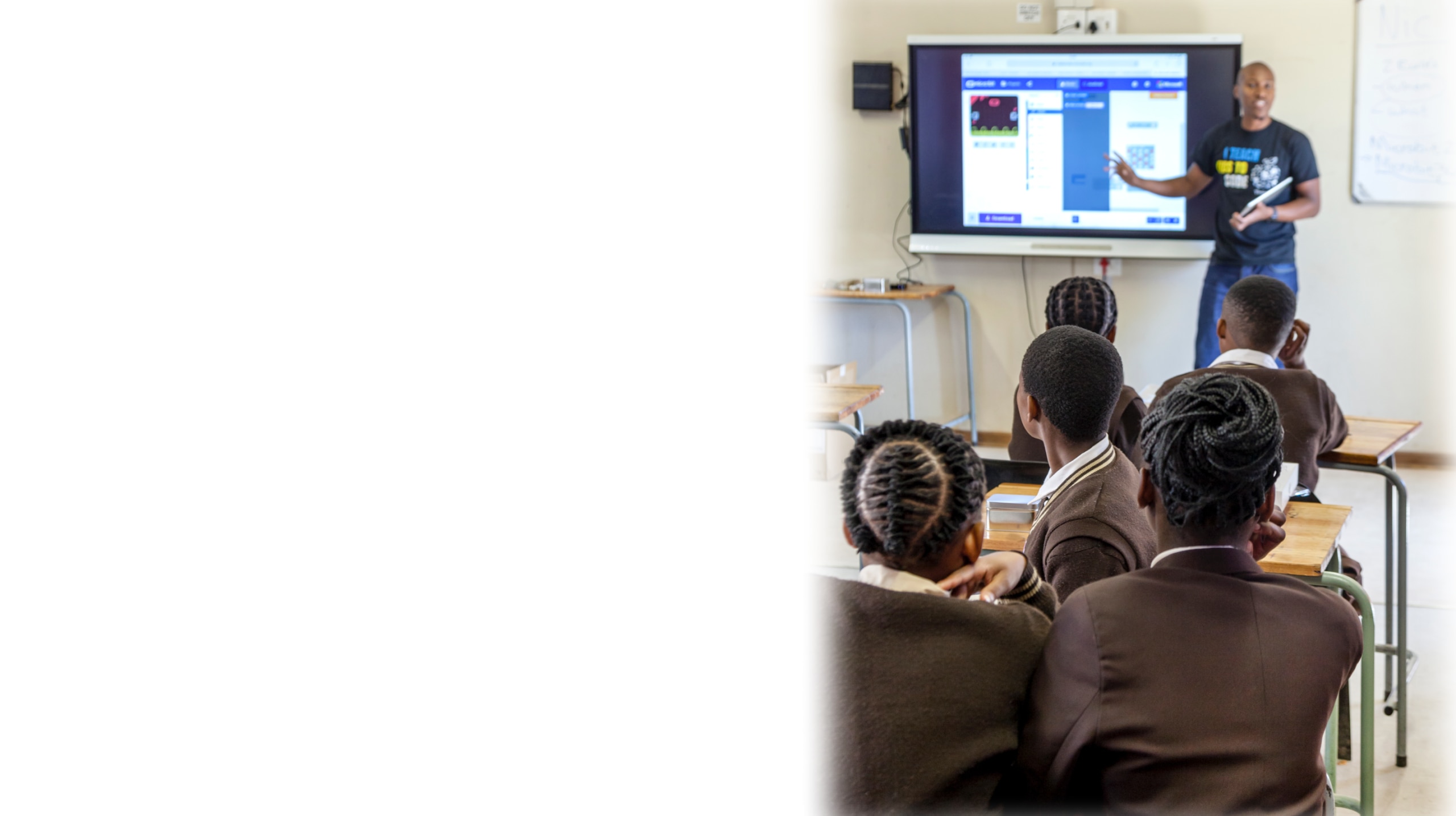
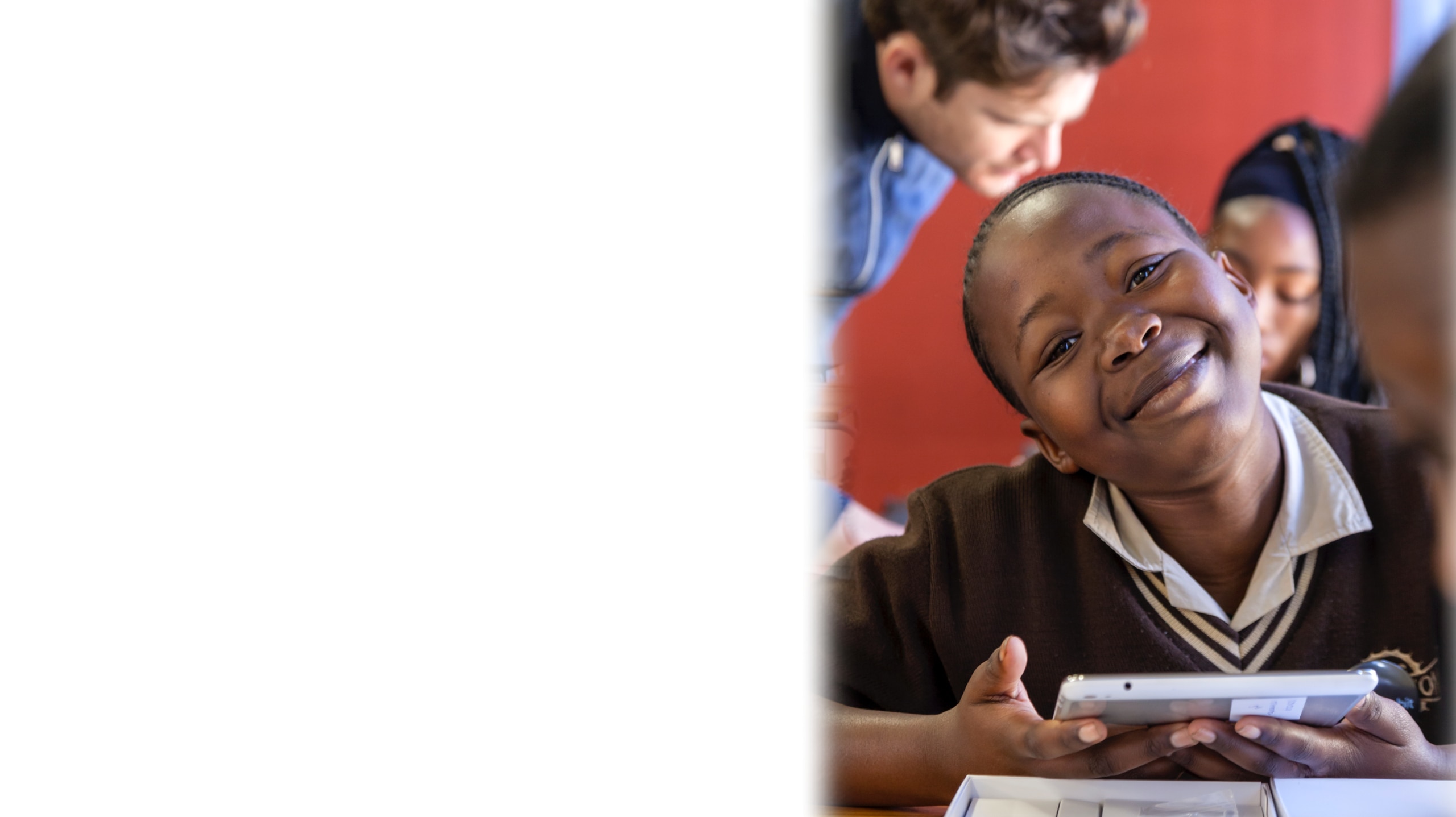
GirlsMakingTech was designed in collaboration with iSchoolAfrica to introduce girls to computer coding in a creative, fun and safe environment.
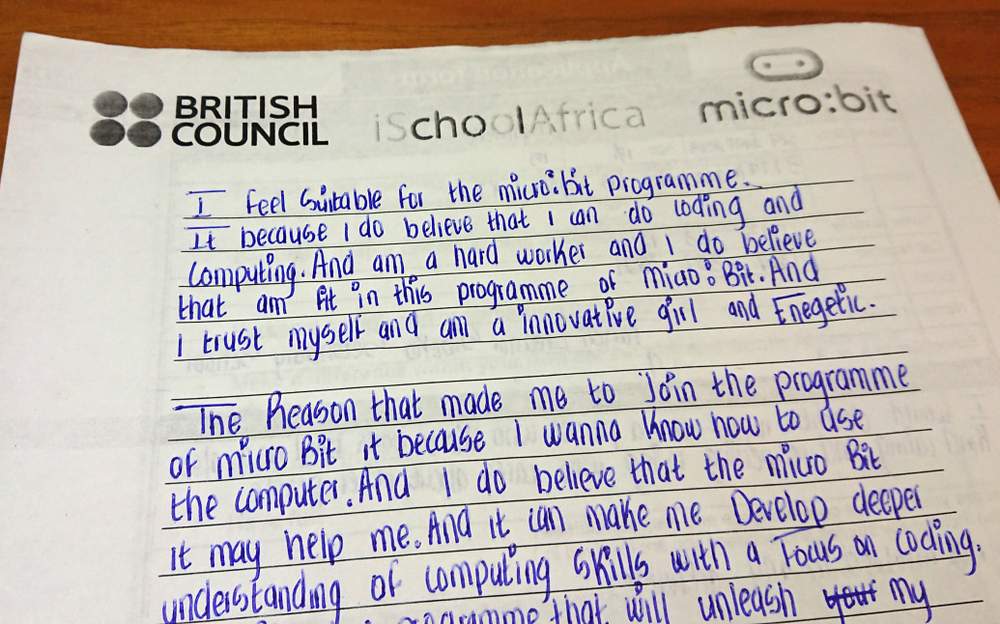
To participate, students wrote an essay explaining why they wanted to take part in the #GirlsMakingTech pilot project
To participate, students wrote an essay explaining why they wanted to take part in the #GirlsMakingTech pilot project
110 girls were invited to take part in the 10 week course
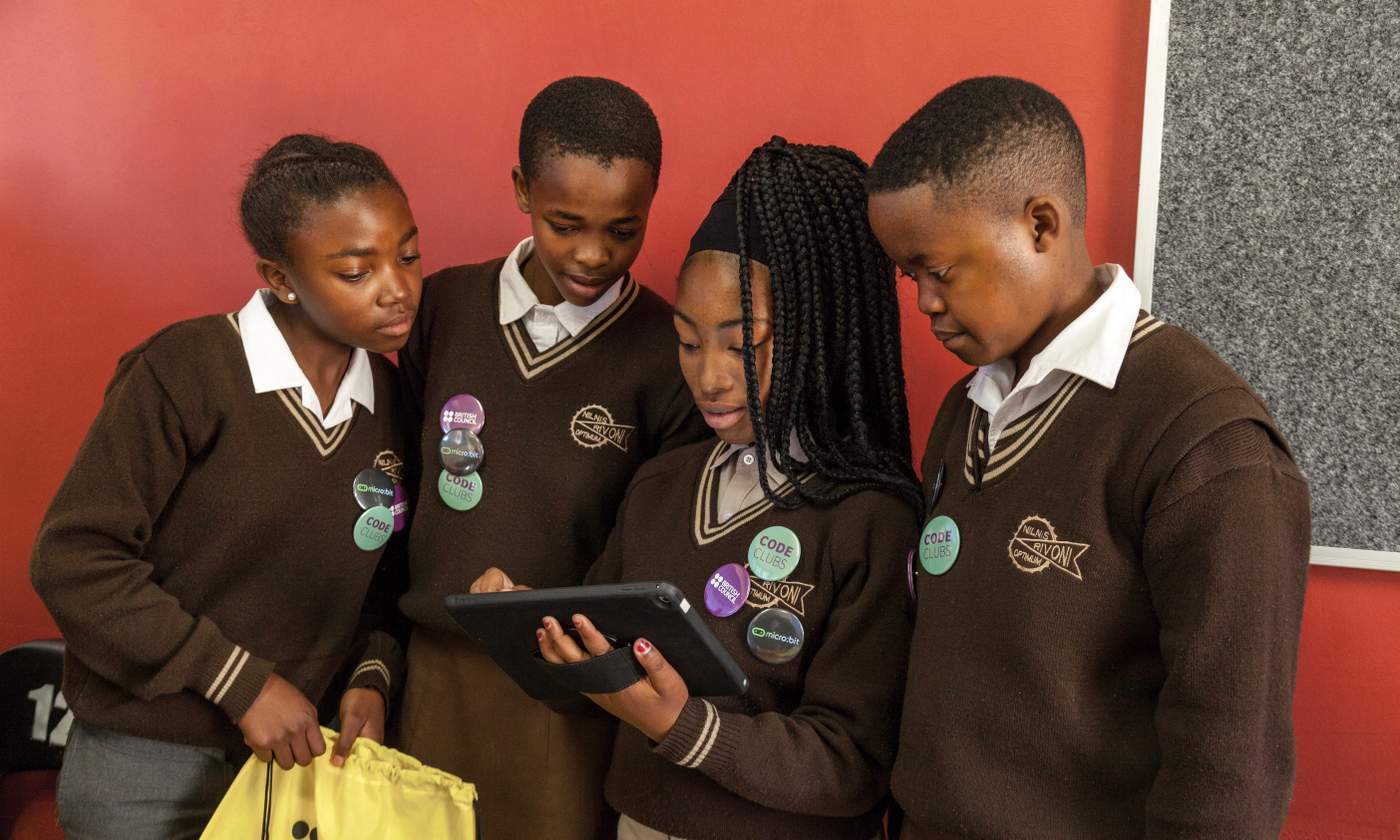
88 per cent of girls found computer coding easier to learn than they'd expected
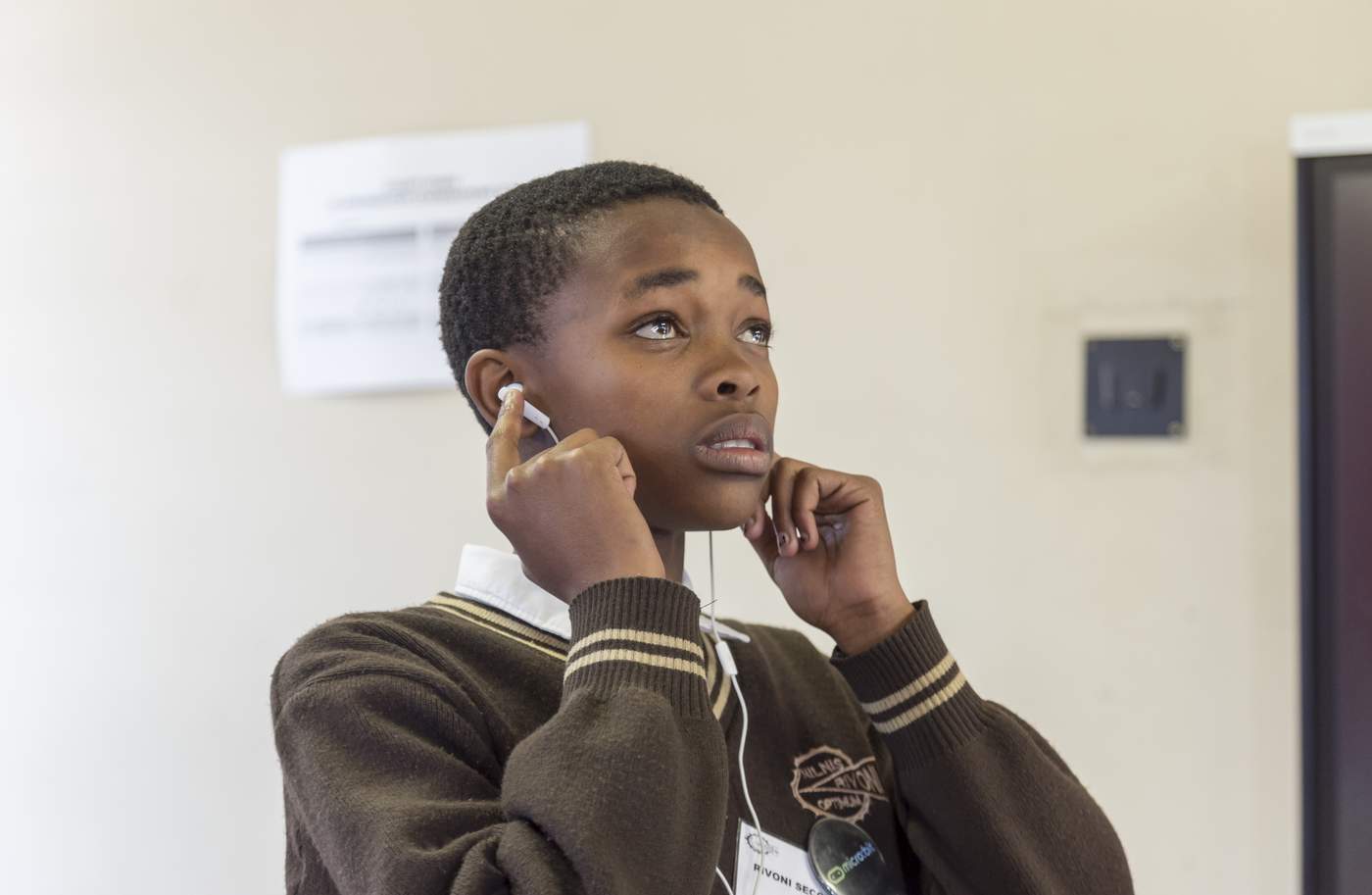
110 girls from secondary schools in the East Rand district outside Johannesburg came together each Saturday to learn the basics of computer coding using the micro:bit.
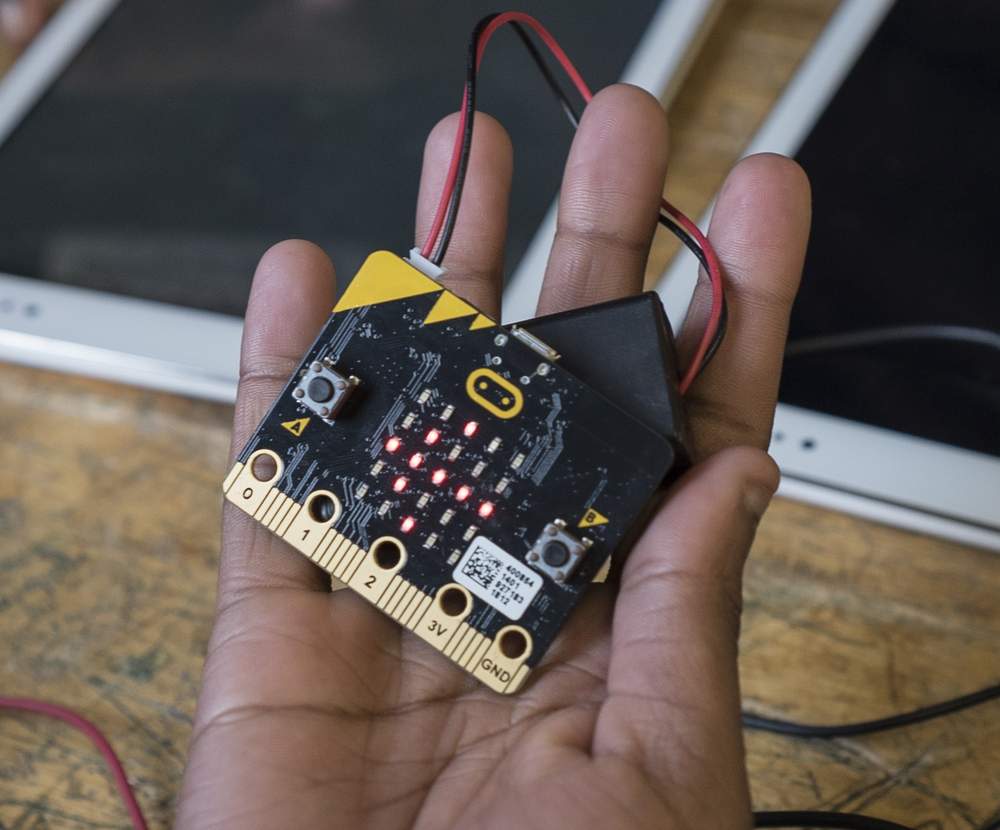
The BBC micro:bit is a pocket-sized codeable computer with motion detection, a built-in compass and Bluetooth technology.
The BBC micro:bit is a pocket-sized codeable computer with motion detection, a built-in compass and Bluetooth technology.
As a founding partner of the Micro:bit Educational Foundation, the British Council create opportunities for young people to learn about coding.
"We're supporting the girls to create their own inventions, and become digital makers... rather than just consumers of technology."
- Gareth Stockdale, Micro:bit Educational Foundation CEO
After 10 weeks the students were challenged to use their new coding knowledge to create a prototype using the micro:bit to solve a problem in their local community.
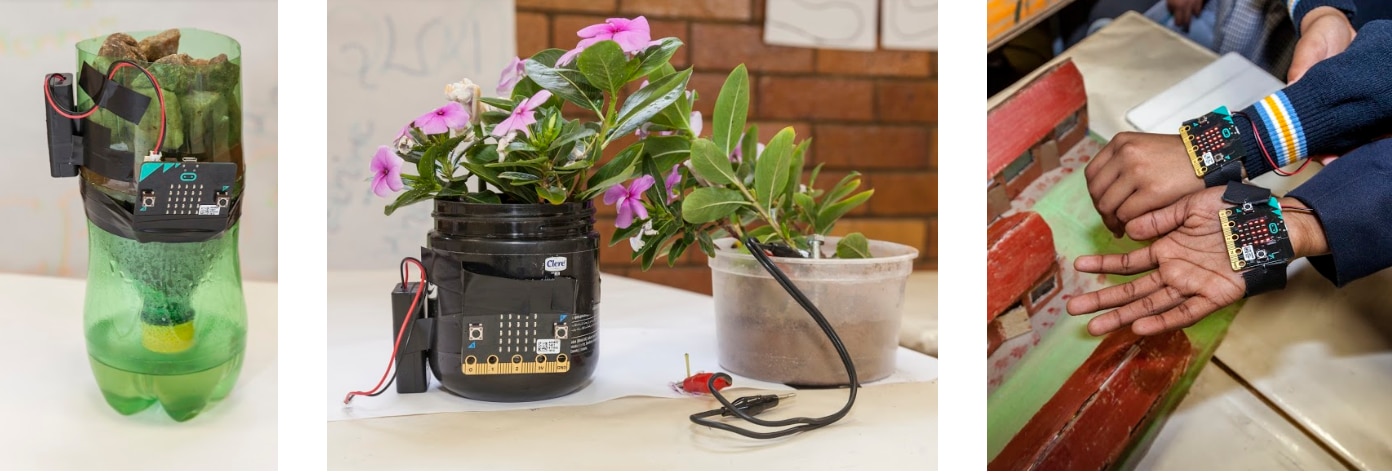
Micro:bit inventions by students, aimed at tackling water irrigation, light monitoring for crops, and step-counting to measure physical activity .
Micro:bit inventions by students, aimed at tackling water irrigation, light monitoring for crops, and step-counting to measure physical activity .
96 per cent of girls said they're interested in learning more coding now
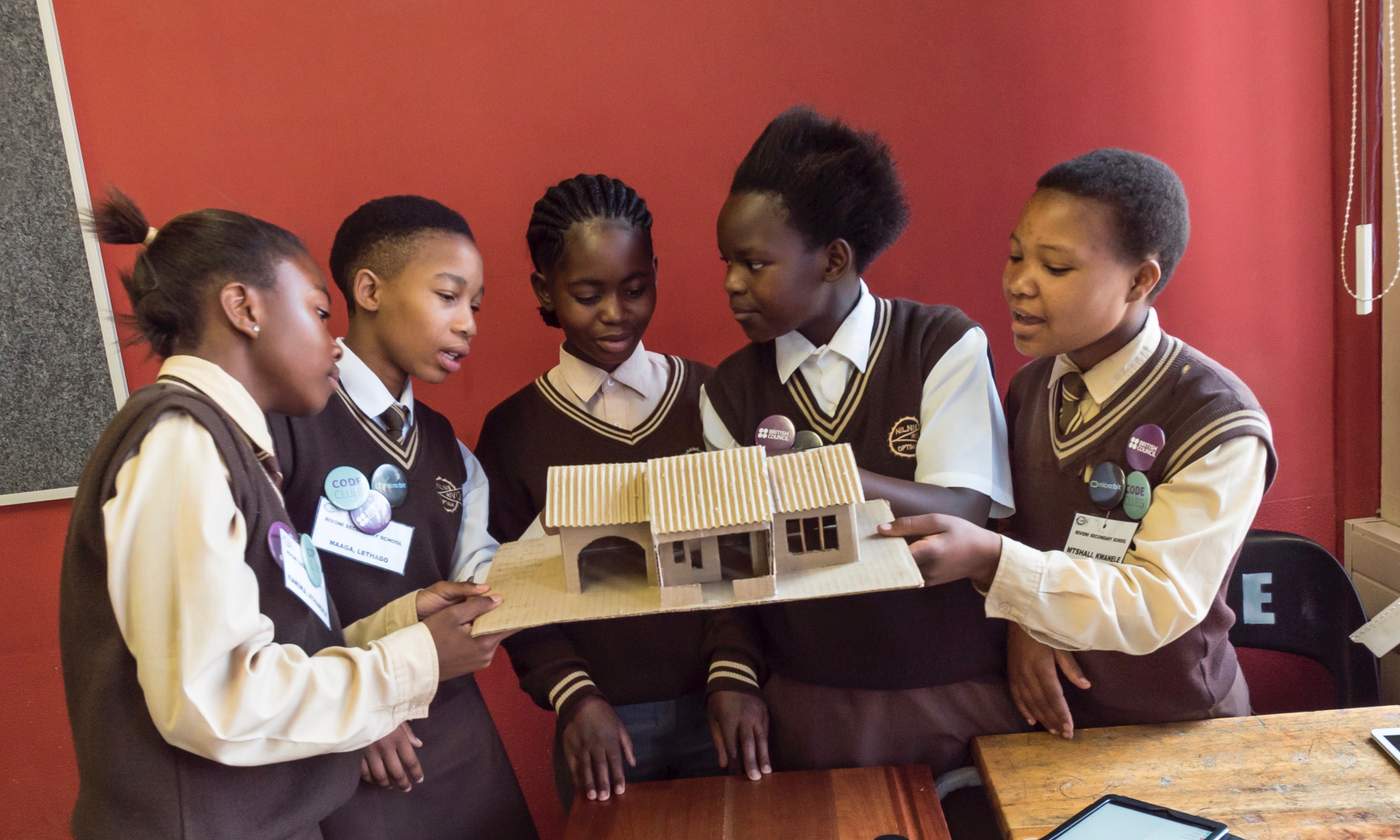
"When we received our micro:bits on the first day we couldn't believe that something so small could do a whole lot of amazing thing."
-Student testimonial
"A memorable Saturday was when we coded and then played the game 'Infections' - everyone was running around ridiculously, trying to hide their micro:bits just to stay alive! "
- Student testimonial
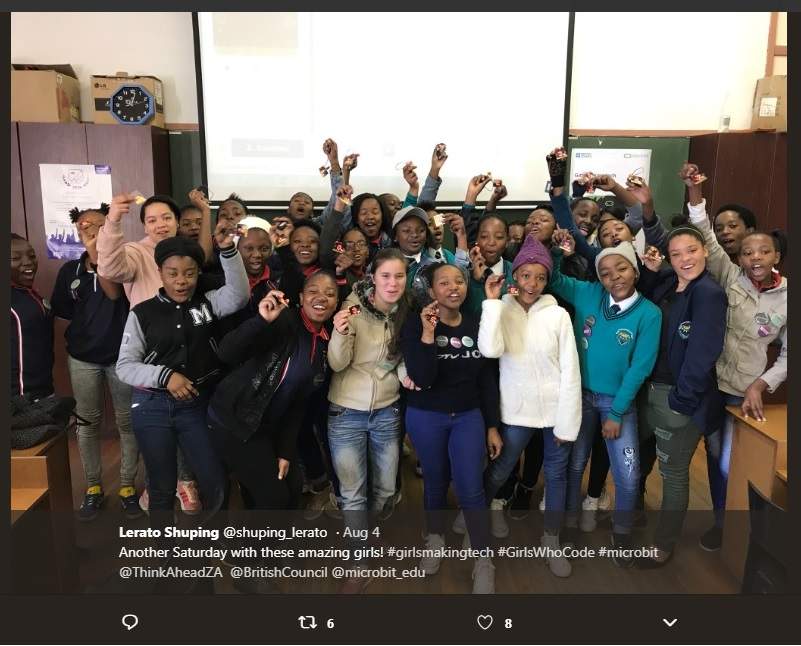
#GirlsMakingTech on Twitter.
#GirlsMakingTech on Twitter.
Of the girls who felt coding did not appeal to them, 95 per cent thought coding was fun after the course.
Based on a survey of 110 girls before and after the course.
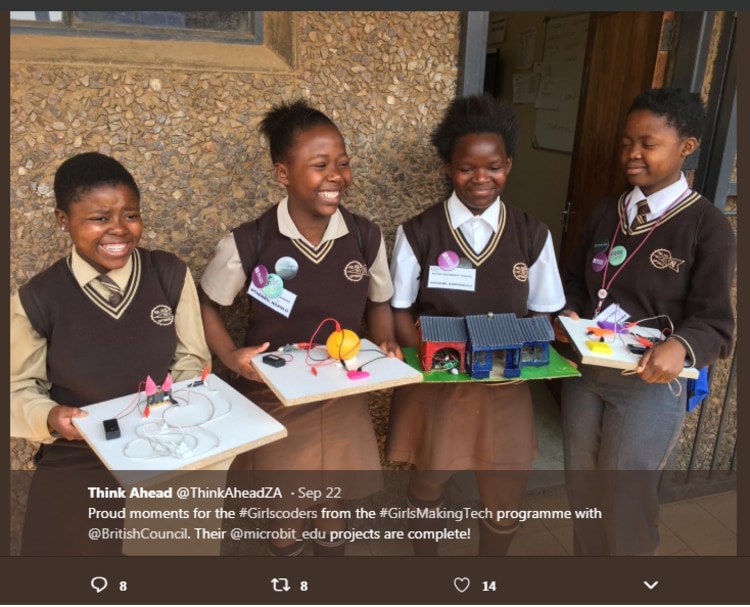
#GirlsMakingTech on Twitter
#GirlsMakingTech on Twitter
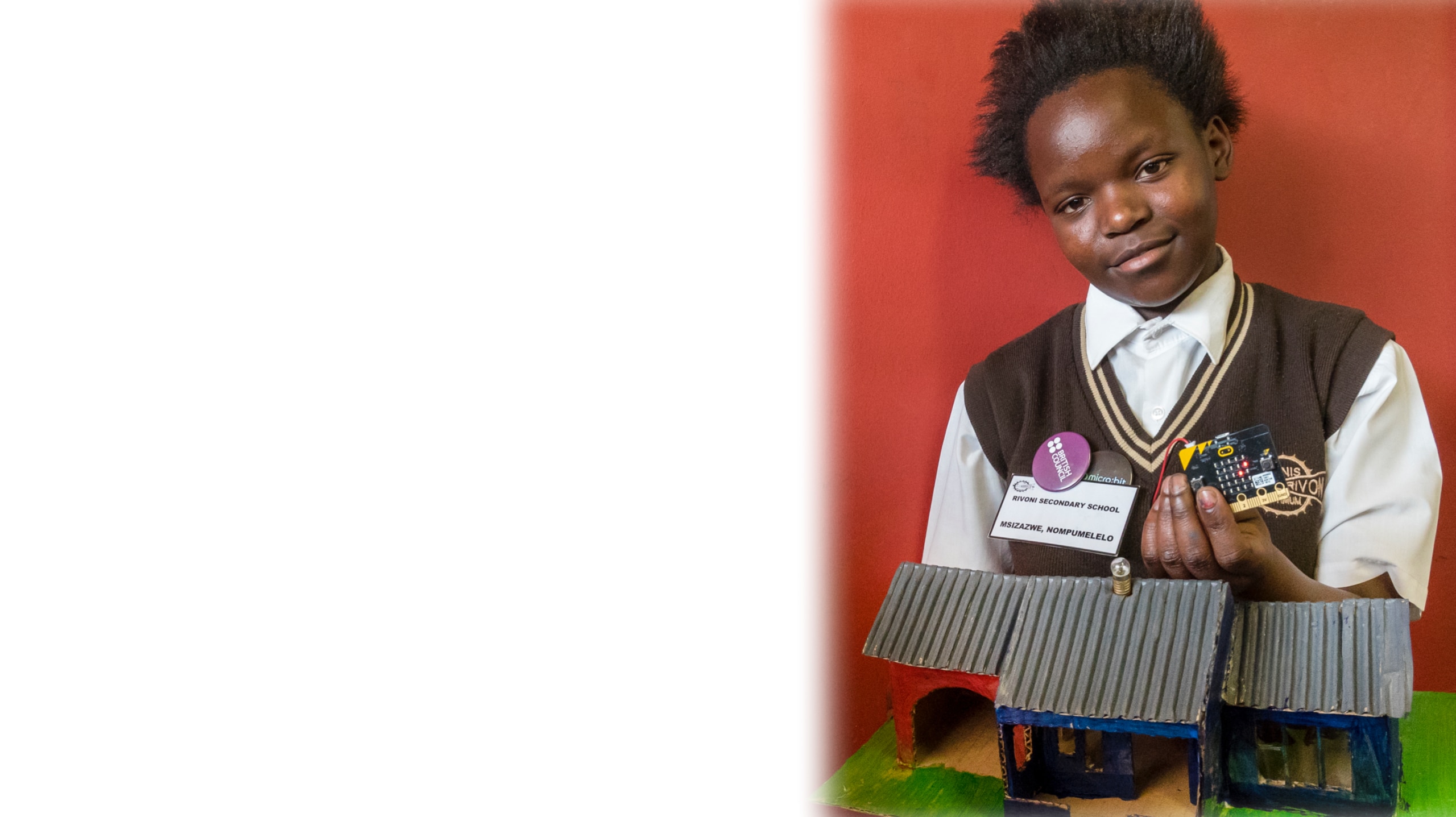
Watch our video to find out how three girls responded to the micro:bit in South Africa:
The learners demonstrated their inventions and shared their experiences at a showcase event in the East Rand. Jean September, British Council Director Cape Town said:
"Most of the students do not have access to using a laptop, tablet or a desktop computer...
...so I think the girls have done brilliantly in not just adapting to use a computer but also learn a computer programming language. Their new confidence in coding the micro:bits enabled them in groups to contribute to solving challenges in their respective communities.
This opportunity to learn coding was so far from their everyday experience, they jumped at it and their 100% attendance throughout is testament to their eagerness to learn and take on new creative ways of learning new things."
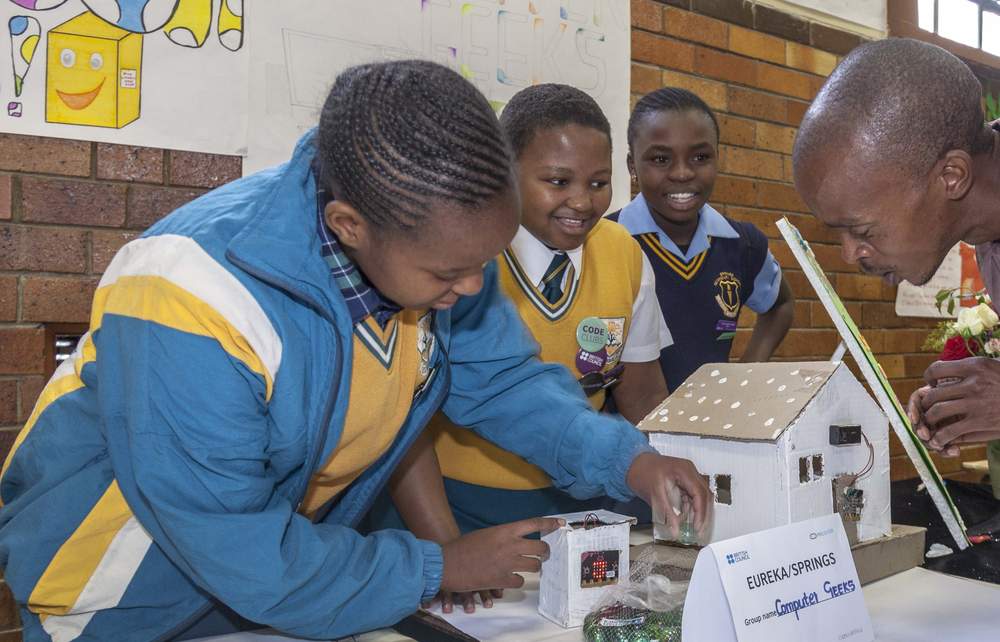
Inspiring a new generation of young innovators
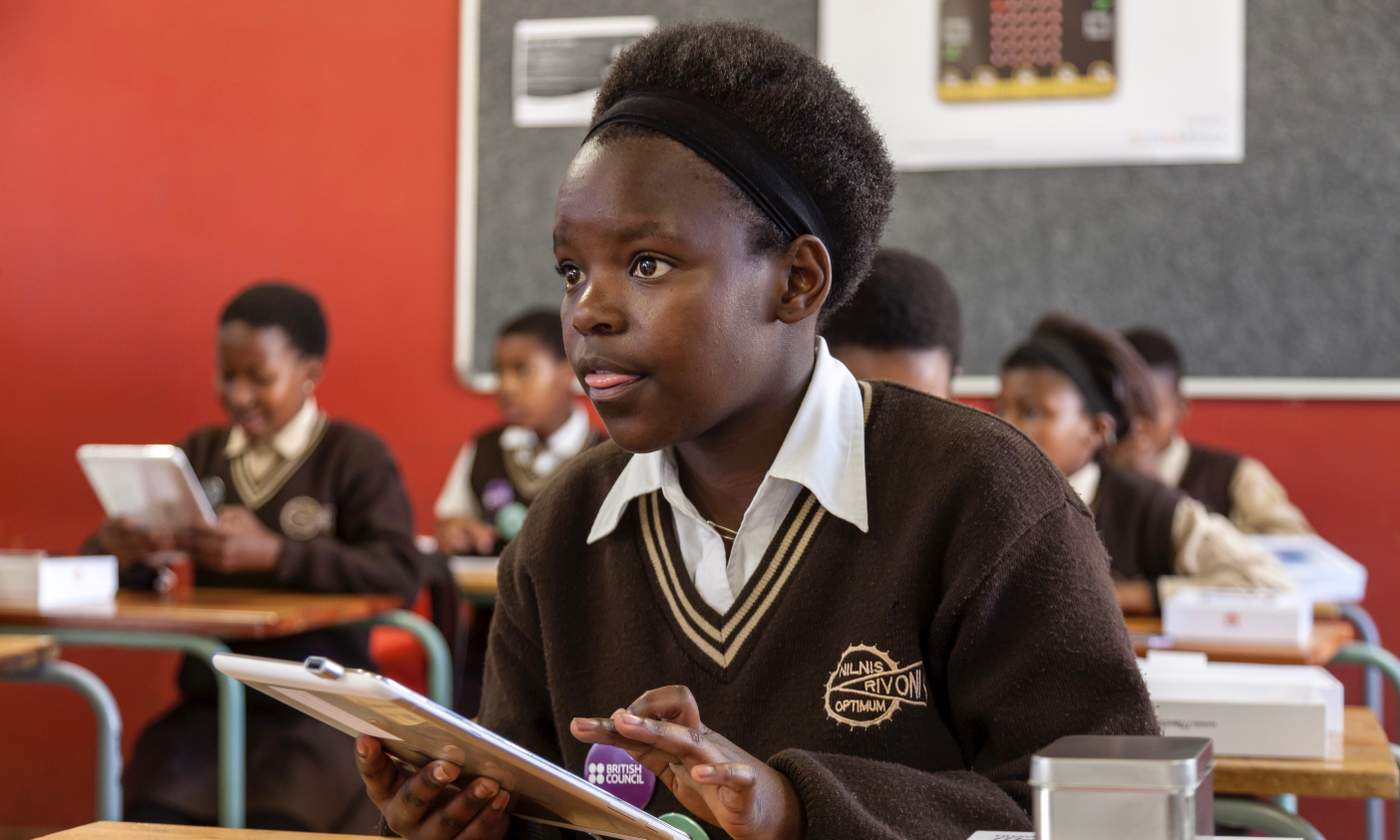
In partnership with:
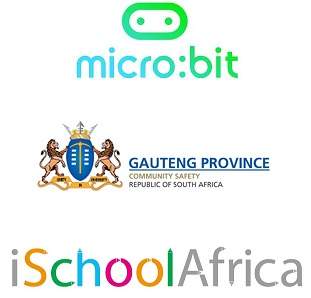
Micro:bit Educational Foundation
Gauteng Education Department
Facilitated by iSchoolAfrica - an education initiative developed by Core Group that reaches schools across South Africa in rural and urban settings.
Find out how British Council uses the micro:bit to support Creative Computing in Bangladesh and Coding for Refugees

